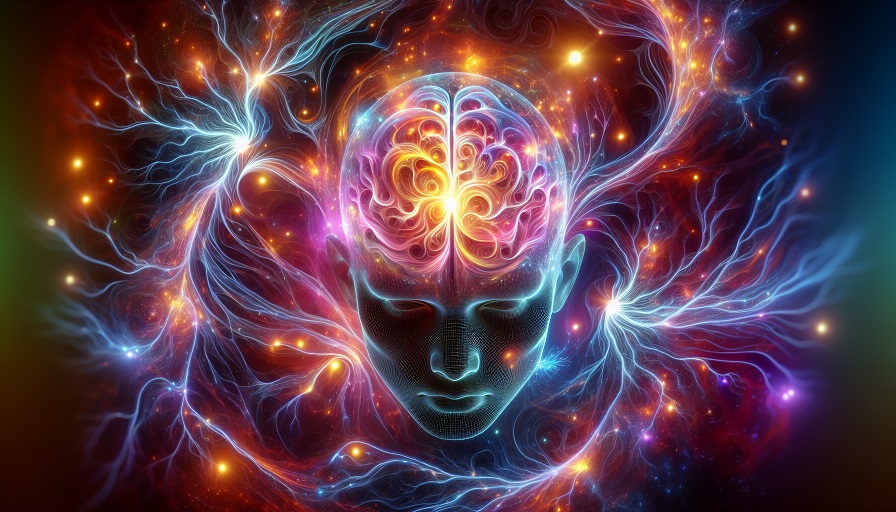
Yes, spending time in complete darkness can influence brain chemistry by stimulating melatonin production, altering circadian rhythms, and encouraging shifts in neurotransmitters, though the effects depend on duration and context.
Contents
Why Darkness Affects the Brain
Light is one of the brain’s most powerful regulators. Specialized cells in the retina send signals to the suprachiasmatic nucleus (SCN), the brain’s “master clock,” which governs circadian rhythms. When light exposure decreases, the pineal gland releases melatonin, a hormone that regulates sleep and helps initiate restorative brain processes. Thus, prolonged darkness can shift the brain’s chemistry, encouraging deeper rest and altered states of awareness.
Melatonin and Sleep Regulation
The most immediate effect of darkness is an increase in melatonin production. Melatonin not only signals sleep readiness but also acts as an antioxidant in the brain, helping reduce oxidative stress. Time in darkness allows the pineal gland to sustain melatonin release, supporting consistent sleep cycles and potentially improving overall restorative brain function.
Neurotransmitter Shifts in Darkness
Darkness may influence more than just melatonin. Research suggests:
- Serotonin balance: Extended time in darkness may alter serotonin metabolism, which influences mood and emotional regulation.
- Dopamine modulation: Reduced stimulation in darkness may help reset dopamine pathways that are overstimulated by constant media and sensory input.
- GABA activity: Darkness often promotes relaxation and lower arousal, partially linked to increased GABAergic activity, the brain’s main inhibitory neurotransmitter.
Darkness Retreats and Sensory Deprivation
Some spiritual and therapeutic traditions use prolonged darkness as a form of reset. Darkness retreats, practiced in Tibetan Buddhism and other cultures, involve staying in pitch-black environments for days. Participants report vivid dreams, heightened creativity, and altered states of consciousness. While partly psychological, these effects may also reflect real neurochemical shifts as the brain adapts to sensory deprivation.
The Role of Circadian Rhythms
Our circadian rhythm relies on daily light-dark cycles. In modern society, artificial lighting often disrupts this rhythm, delaying melatonin release and impairing restorative sleep. Periods of complete darkness – especially in the evening – can help realign circadian signals, allowing the brain to return to its natural hormonal and neurotransmitter cycles.
Potential Benefits of Time in Darkness
- Improved sleep quality: Supporting melatonin production helps restore healthy sleep cycles.
- Stress reduction: Darkness lowers sensory input, calming the nervous system and reducing cortisol levels.
- Enhanced creativity: Some people experience spontaneous imagery or insights during darkness exposure.
- Mood support: Resetting serotonin and dopamine pathways may stabilize emotional states.
Possible Risks and Limitations
Darkness is not universally beneficial. Extended periods without light can also increase feelings of isolation or depression in some individuals, particularly in people prone to seasonal affective disorder (SAD). Too much darkness, especially without balance, may disrupt rather than restore mood regulation. Additionally, the effects of long-term darkness on brain chemistry are still not fully understood.
Practical Applications of Darkness
- Sleep hygiene: Aim for a completely dark bedroom by using blackout curtains or a sleep mask to optimize melatonin release.
- Digital detox: Taking short breaks in darkened rooms can help calm the mind and reduce overstimulation from screens.
- Mindful retreats: Trying a few hours of intentional darkness, rather than days, can provide a reset without overwhelming the nervous system.
- Evening wind-down: Dimming lights before bedtime signals to the brain that it’s time to shift toward rest.
Spending time in complete darkness can reset aspects of brain chemistry by boosting melatonin, regulating circadian rhythms, and modulating neurotransmitters like serotonin and dopamine. While prolonged darkness retreats may have profound psychological and spiritual effects, even small steps – like darkening a bedroom – can improve restorative sleep and mental clarity. The key is balance: darkness helps the brain restore itself, but it should complement, not replace, exposure to natural daylight, which is equally critical for brain health.

